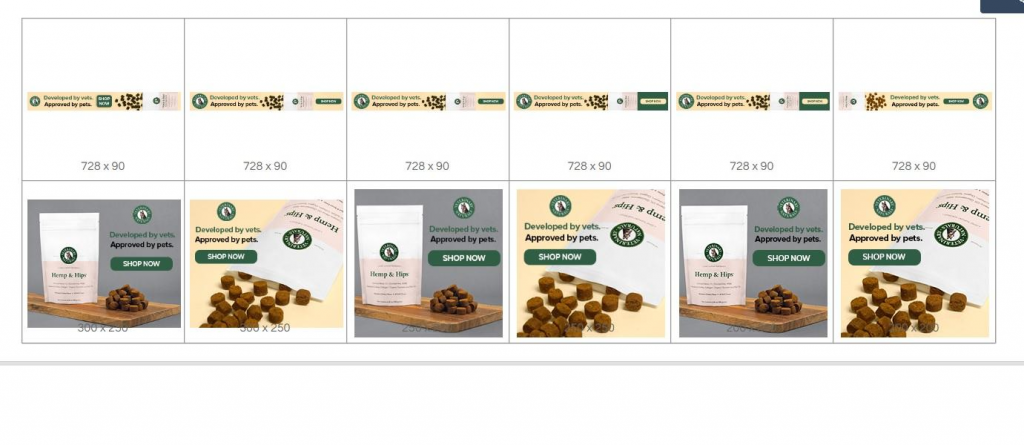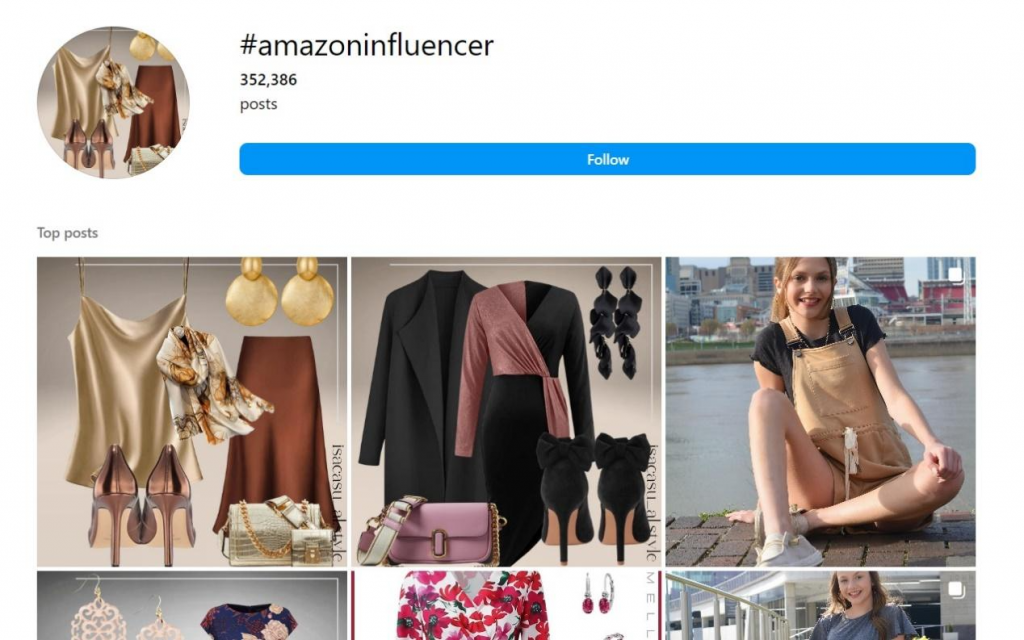Affiliate Marketing is actually where I got my start in the whole digital marketing business. There are pros and cons to leveraging affiliates to grow your business, and there are also right ways and wrongs to go about it. In this article I will go in-depth on exactly what Affiliate marketing is, how you can leverage it for your business, where to go for affiliates, best practices for setting up an affiliate marketing program, and platforms you can leverage to make affiliate management easier (and if you want to turn this article into a drinking game for every time the word affiliate is used… you might have an interesting night).
What is Affiliate Marketing?
Affiliate marketing is a performance-based marketing strategy that rewards affiliates for promoting a business’s products or services. Affiliates can be bloggers, influencers, email list management companies, or other businesses that have an audience interested in your products (I usually refer to these as strategic partnerships though). When an affiliate promotes your product, they receive a commission for each sale made through their unique affiliate link. I recent Inc. report found that more than 40% of U.S. brands cited affiliate marketing as their top customer acquisition channel.
The advantage to affiliate marketing is that, unlike Google/Facebook/Instagram or other forms of paid ads, you are only paying if an order is completed. “Affiliate marketing is a low-risk, high-reward strategy for ecommerce businesses looking to increase their revenue and reach.” – Syed Balkhi, founder of WPBeginner. For smaller companies that might not have the cash flow to spend a lot on paid ads, high-performing affiliates can be an alternative way to scale sales without having to invest a lot of capital into advertising. “Affiliate marketing has the potential to be a highly effective growth strategy for ecommerce businesses of all sizes.” – Adam Enfroy, blogger and affiliate marketer
Just like managing influencers, a robust affiliate marketing program can be time consuming and labor intensive. When it comes to affiliate marketing, it all comes down to the payout and how well your product/service converts.
How do you set up an affiliate program?
Before we get into finding affiliates, let’s talk about how to set up an affiliate program. There are probably three main ways that you can set up an affiliate program for your business:
- Informally set it up yourself on your website – definitely more difficult to manage, but in some niches this is more manageable and easier to do
- Shopify plugins – there are several shopify plugins that will help you manage affiliates directly in your store. I won’t go into detail about them here, but head over to this article for a list of affiliate management plugins for shopify.
- Affiliate Management Platforms – this is by far the easiest in my opinion, and there are several of them out there that you can choose from
Physical Products:
- Shareasale
- CJ Affiliates
- Amazon Associates
- Awin – both physical and digital products
- Rakuten Marketing
Digital Products:
- Avangate Affiliate Network
- Clickbank – primarily digital products, but some physical products as well
B2B Software:
- Partnerstack
- Partnerpage.io
The affiliate market platforms give you access to the largest pool of direct affiliates, and make it easy to manage everything in one place… but if you are like me, I like to diversify my traffic sources, so we leverage the platforms, plugins, direct outreach, and the latest trend of shopping cart integrations that connect you with micro-influencers (I wrote an entire article about this, right here).
What are the core features of a successful affiliate program?
If you look at any of the really successful affiliate programs out there, they all have some core features that make them successful. Remember, you are trying to convince someone that has influence or reach, that they should choose to promote your products over all the other potential products on the marketplaces. So how do you do that? Here are some of the key features your affiliate offer should have.
High-converting landing pages
Make sure you have tested your offer. Know what the key metrics are such as page conversion rate, average order value, and most importantly… lifetime value. If they have to choose between your products and a competitors, they want to know which product is going to lead to the most amount of sales and the highest commission. Which leads to the next one…
Have a compelling commission structure
There are key variables here so it will depend upon how you run your business and whether or not you have your numbers dialed in, but there are two schools of thought here. Some affiliates like to get all of there commission on the first transaction, while others like continued payments if there is an extended lifetime value. If you have a product that lends itself to continuity or auto-ship programs, you will attract a higher number of affiliates simply because the potential commission is greater. Even though we have a fairly high lifetime value for our customers, we front load a much higher commission than our competitors trying to entice better affiliates.
Assets for them to use
Make it easy for your affiliates. Test email copy and images, so that you can supply them with easy to use digital assets so you take some of the work off of them to try to figure out what works. Some affiliates will prefer to create their own images and copy, and by constantly split-testing images and copy, and then giving it to them, it will lead to happier affiliates.

Faster payouts
Some companies delay payments or batch them in intervals. If you want the best of the best affiliate marketers to promote your products, speed up the payout. One of the biggest concerns with faster payouts is the potential for chargebacks or refunds (the average chargeback rate in ecommerce is roughly .5%, and the average return rate can be around 20%). If you have a higher-than-average chargeback rate, build this into your commission structure so that you can pay out faster.
Here are Few Additional Tips:
- Have a tiered commission structure with added bonuses for the higher tiers. Incentivize the best affiliates and keep them happy
- Take your highest value customers… the ones that order more than 4-5 times from you and do manual outreach. We have found that our customers who order more than 8 times from us, are our best advocates and they will happily promote our products, and have first-hand knowledge of what the products do.
How Do You Find Affiliates to Promote Your Products?
Now that you have a well thought out affiliate program, its time to find affiliates. There are actually a couple of ways to do this, and it depends what platform you are looking for affiliates to promote. Some only promote digital products, others only promote for a specific niche, and some may only promote products with Amazon links.
Other brands in your niche
We have always found the best affiliate partners through outreach to other non-competing brands in the same space. Just like your business, other businesses in your niche should also have social channels, an email list of buyers, and maybe a blog that you can figure out a way to help promote each others products. Strategic partnerships like that have a vested interest in helping each other grow and can lead to long-term opportunities.
Product Review Sites
Most product review sites have a revenue share or affiliate model for the products they review. If you are not familiar with who in your space does product reviews, just Google terms around “Best (insert keyword)” “(insert keyword) reviews”… run through different combinations of all the keywords you target and compile a list. Odds are they have affiliate links to either Amazon, or directly to products right below the reviews.
Influencers
It goes without saying, being an influencer on Instagram and Tik Tok is big business. Some have large followings and the ability to create buyers at the drop of a post. It can also be a black hole of marketing dollars if you don’t know exactly what you are looking for and what the demographics are of the person your hire. Everyone has a different strategy for leveraging social influencers, but my strategy has always been to focus on the ones that have smaller audiences. They tend to have a higher engagement rate, and people connect with them better. Whatever your strategy, influencers CAN make great affiliates.

The other bonus from leveraging influencers is User Generated Content (the holy grail for our business). User Generated Content that is authentic and done well is hard to find. Having an influencer as an affiliate should give them the added motivation to make sure the content they create is top notch.
Sponsored Content
Sponsored content might be my new favorite marketing tool. Sponsored content has several forms, but most of it is an article comparing different products to each other, talking about the best of (insert keyword) for 202X”, or a first person story talking about how the product impacted their life. There are several ways to find sponsored content, including ahrefs (read this article about finding sponsored content your competitors are using), or just going through a google search and seeing what magazines and articles have “Sponsored Content” written at the top.


Here is an article I wrote for Medium about how to leverage sponsored content to promote your products(https://garynealon.medium.com/using-sponsored-content-to-promote-your-products-9115b2459801)
Same goes for social. As you are scrolling through Instagram or Facebook, take notice to your competitors ads and see what pages are doing sponsored or paid content.

Social hashtags
Twitter, Instagram, and Facebook make it easy to find people that are promoting products on Amazon.. these same people would also make great affiliates for your products. Here are some hashtags you can use to search for people promoting affiliate offers:
| Instagram Hashtags:#AmazonFinds#AmazonFashion #amazoninfluencer#AmazonDeals #AmazonMustHaves#AmazonHome | TikTok Hashtags:#AmazonFinds#AmazonHaul #AmazonFashion#TikTokMadeMeBuyIt #FoundItOnAmazon |

Industry specific newsletters or magazines
If they are sending consistent emails or newsletters, odds are they are monetizing the list through affiliate offers. It seems like every niche has some big email list management companies or newsletters in the space.
How Do You Manage a Network of Affiliate Marketers?
Lets say you are lucky enough to have a product that a large group of affiliates are just DYING to promote. How do you manage it all?? Well first of all it starts with well defined guidelines and rules. Some of the areas that you want to make sure you cover in your guidelines:
Payout terms and how they will be paid – What is the payout frequency? Is there a minimum amount of commission before payment is sent? How are they paid (paypal, check, ACH)
Returns and Chargebacks/Fraudulent Charges – How do you handle returns and under what circumstances? How does that affect the commission payouts?
Paid Advertising Restrictions – can they run PPC? If so, what keywords can they target and which ones can they not? Are they allowed to use the company’s name in any way? Some companies would rather an affiliate rank for some of the keywords versus competitors, but it really depends upon your company strategy and how hard you are protecting your brand. You may find that you trust some affiliates (or a single affiliate) but not others
Graphical Assets – can they get creative, or are they restricted to only the assets you provide? Are you providing assets and are you split testing them to make sure they are converting as high as possible?
Affiliate links and discount codes – do they have special affiliate links? Are their discount codes they can use for their audiences?
Intellectual Property Rights and Use of Your Companies Image/Likeness – Protect your brand. While the majority of affiliates are good people, there are some out there that will use black hat strategies to make money. I have a friend that was sued by a very well known celebrity…not because he did anything wrong, but because an affiliate was using the celebrities likeness to promote his product. Affiliates can and will be seen as an extension of your business, so make sure you outline the intellectual property rights.
Indemnification – make sure it is clearly spelled out that you are not responsible for their actions
Dispute Resolution – hopefully it never comes to it, but what happens a dispute occurs. In what manner is it handled, and in what jurisdiction?
Termination of Agreement – under what terms can both parties terminate the agreement
By no means is this a complete list of what should be included, but it is the major points that should be covered. Here is a free pdf that has some examples of what these sections should look like. The will and should be different for every business, so always consult an attorney to make sure you have everything covered.
Get our Affiliate Program Guidelines and Rules delivered right to your inbox.
Here are Few Additional Tips:
- While it adds more manual labor, require that each affiliate be manually approved. We have found that it cuts down on the number of fraudulent charges and chargebacks, and it allows us to review where they will be promoting us
- While it may seem tempting to take on any and all affiliates that apply, make sure you really scrutinize who is applying, where they are going to promote your products, and how they are going to promote them. 1-2 bad affiliates can ruin a brand’s reputation.
- Have detailed guidelines of what affiliates can and more importantly, CAN NOT do to promote and drive traffic to your brand. Ultimately you need to protect your brand first, so make sure that you spell out whether or not they can run paid ads, what platforms they can promote on, and how they can use your brand’s name and logo. I have included some sample guidelines below, but the affiliate platforms will also help you map these out.
- Building in awards and recognition will motivate some affiliates to go the extra mile to win. If you are going to do this, make sure the prize is big enough to catch the eyes of the big players in the space.
Conclusion
That’s it in a nutshell. Everything you need to know about affiliate marketing – what it is, how to set up an affiliate marketing program, how to find quality affiliates, and how to manage affiliate marketing campaigns. Take the time to set everything up properly, and start building your dream affiliate team today.
If you have been using affiliates in your ecommerce business, I would love to hear your story – success or failure.
Other Commonly Asked Questions About Ecommerce Affiliate Marketing
What is ecommerce affiliate marketing? – Ecommerce affiliate marketing is a performance-based marketing strategy that allows ecommerce businesses to partner with affiliates who promote their products in exchange for a commission on any resulting sales.
How does ecommerce affiliate marketing work? – Ecommerce affiliate marketing involves an ecommerce business partnering with affiliates who promote their products to their audience in exchange for a commission on any sales that result from their referrals.
What are the benefits of ecommerce affiliate marketing? – The benefits of ecommerce affiliate marketing include increased brand awareness, expanded reach, and a boost in sales and revenue.
How to get started with ecommerce affiliate marketing? – To get started with ecommerce affiliate marketing, you need to first identify potential affiliates and create an affiliate program that outlines the terms and conditions for partnership.
What are some successful ecommerce affiliate marketing programs? – Some successful ecommerce affiliate marketing programs include Amazon Associates, eBay Partner Network, and the Shopify Affiliate Program.
How to find the best affiliates for ecommerce affiliate marketing? – To find the best affiliates for ecommerce affiliate marketing, you can search for bloggers, influencers, and content creators in your niche, or use an affiliate network to connect with potential partners.
How do you optimize an ecommerce affiliate marketing program? – To optimize an ecommerce affiliate marketing program, you can use data analytics to track performance, offer incentives to top-performing affiliates, and constantly test and refine your program for maximum effectiveness.
What are some common mistakes to avoid in ecommerce affiliate marketing? – Common mistakes to avoid in ecommerce affiliate marketing include not providing enough support to your affiliates, not setting clear expectations, and not properly vetting potential partners.
Get our Affiliate Program Guidelines and Rules delivered right to your inbox.







